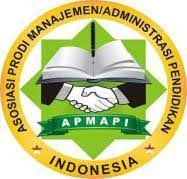Integration of Edtech in Primary School Management to Improve Literacy: a Case Study of Indonesia And Finland
DOI:
https://doi.org/10.21009/improvement.v11i2.50314Keywords:
EdTech, Literacy, Primary School ManagementAbstract
This article explores the role of educational technology (EdTech) in improving literacy outcomes, focusing on diverse contexts such as Indonesia and Finland. In countries like Indonesia, where educational disparities are prevalent, especially in rural areas, EdTech has the potential to bridge resource gaps and provide equitable access to quality educational content. This review synthesizes findings from existing studies on the effectiveness of digital tools such as e-books, learning management systems, and gamified applications in enhancing literacy. The method involves a systematic review of literature, examining the impact of EdTech in multilingual and resource-poor settings, with a comparative analysis of Finland's successful integration of technology in its education system. The results demonstrate that EdTech can improve literacy by providing accessible, engaging, and personalized learning experiences. Furthermore, tools like language translation and adaptive learning platforms can cater to diverse linguistic and educational needs. The discussion highlights how EdTech, when effectively implemented, can foster more inclusive and equitable educational opportunities. In conclusion, the study recommends that governments implement policies supporting EdTech, schools invest in teacher training and infrastructure, and EdTech developers create affordable, context-specific solutions. Future research should focus on longitudinal and quantitative studies to assess the long-term impact of EdTech on literacy development.
Downloads
Published
How to Cite
Issue
Section
License
Copyright (c) 2024 Hamidah, Apriliyani, Purnawati, Warman

This work is licensed under a Creative Commons Attribution-NonCommercial-ShareAlike 4.0 International License.
Authors who publish with this Journal agree to the following terms:
- Author retain copyright and grant the journal right of first publication with the work simultaneously licensed under a creative commons attribution licensethat allow others to share the work within an acknowledgement of the work’s authorship and initial publication of this journal.
- Authors are able to enter into separate, additional contractual arrangementfor the non-exclusive distribution of the journal’s published version of the work (e.g. acknowledgement of its initial publication in this journal).
- Authors are permitted and encouraged to post their work online(e.g. in institutional repositories or on their websites) prior to and during the submission process, as it can lead to productive exchanges, as well as earlier and greater citation of published works.
-
Users/public use of this website will be licensed to CC BY-NC-SA (Attribution & Non-Commercial-ShareAlike)


